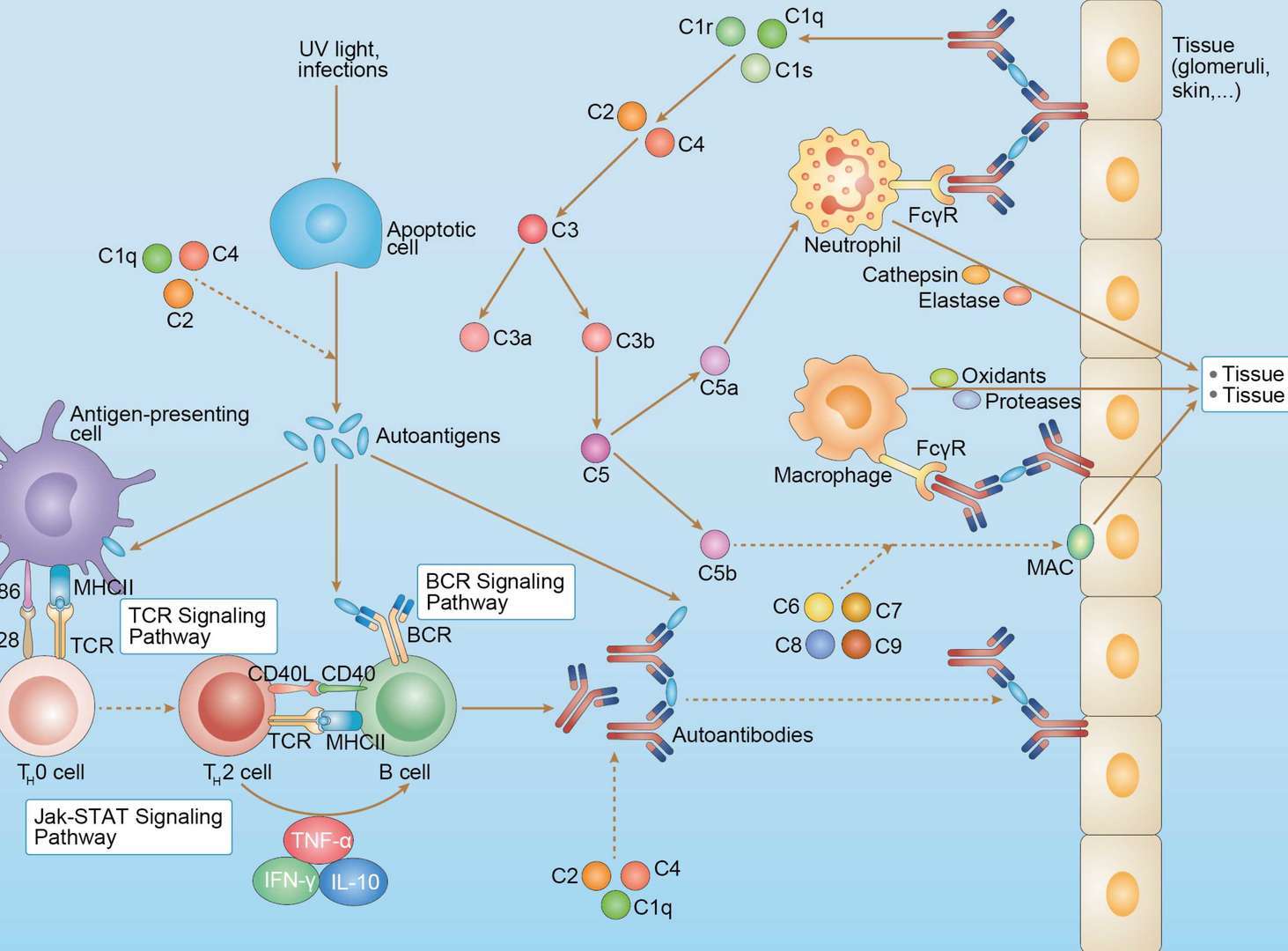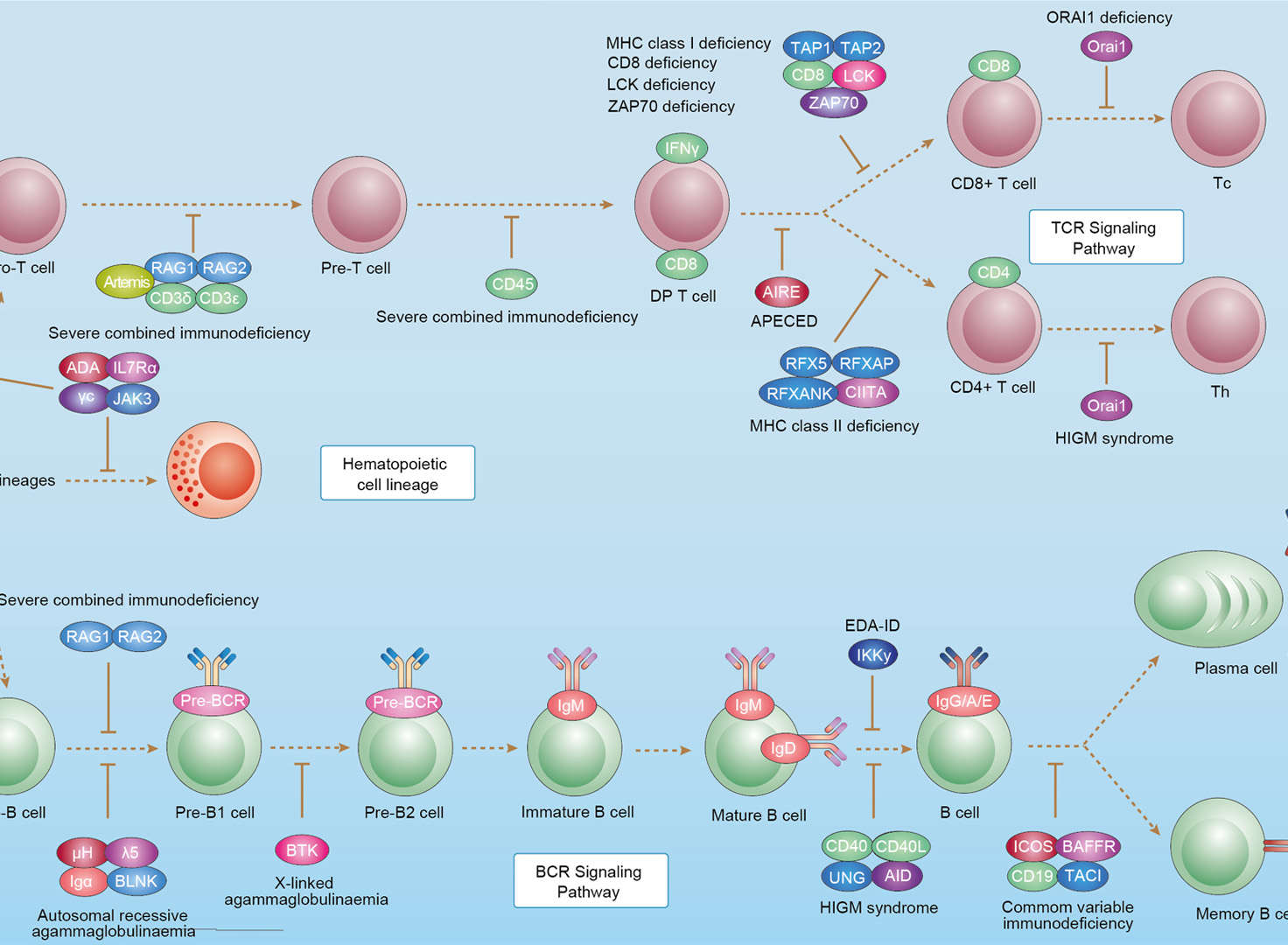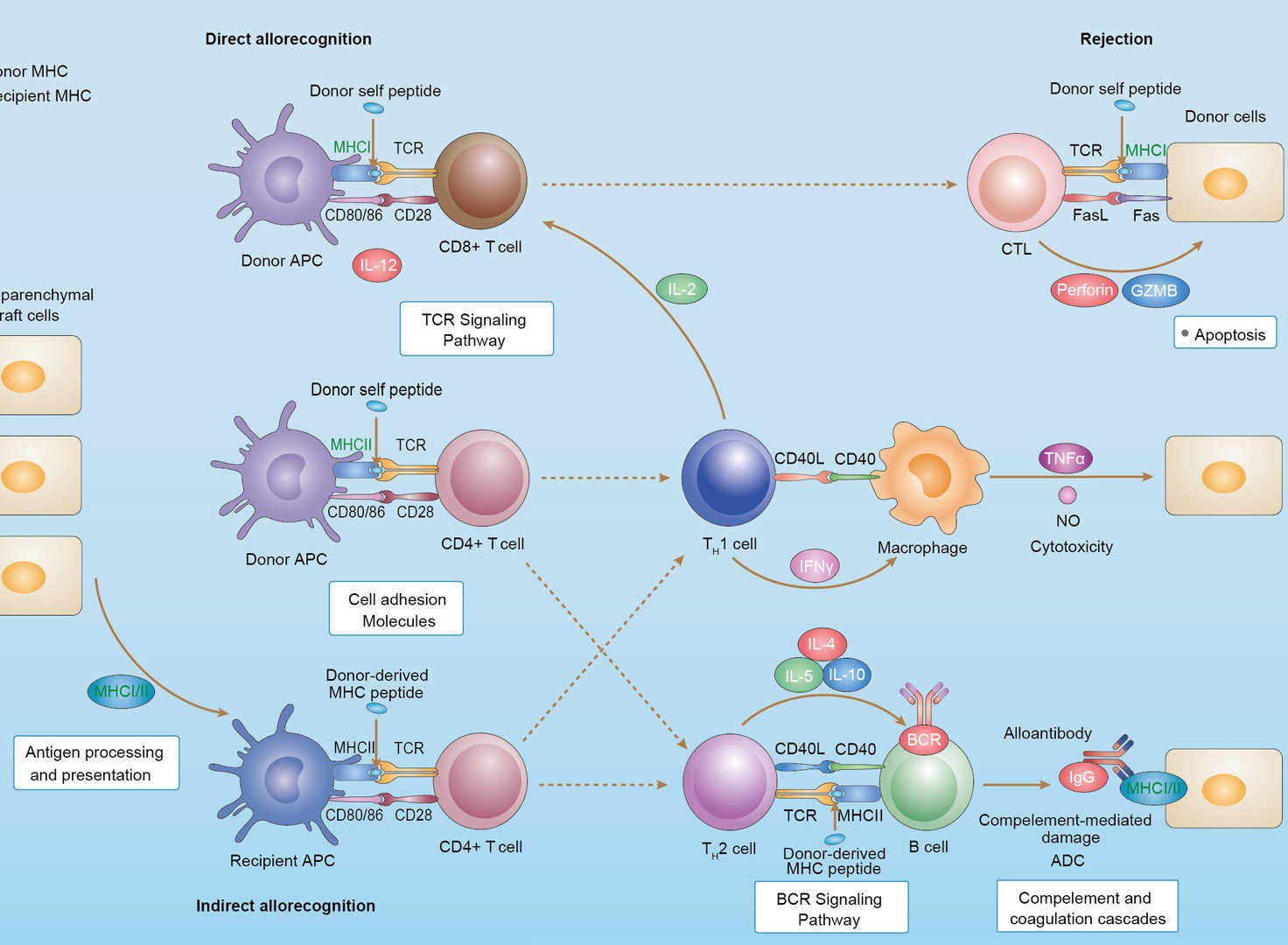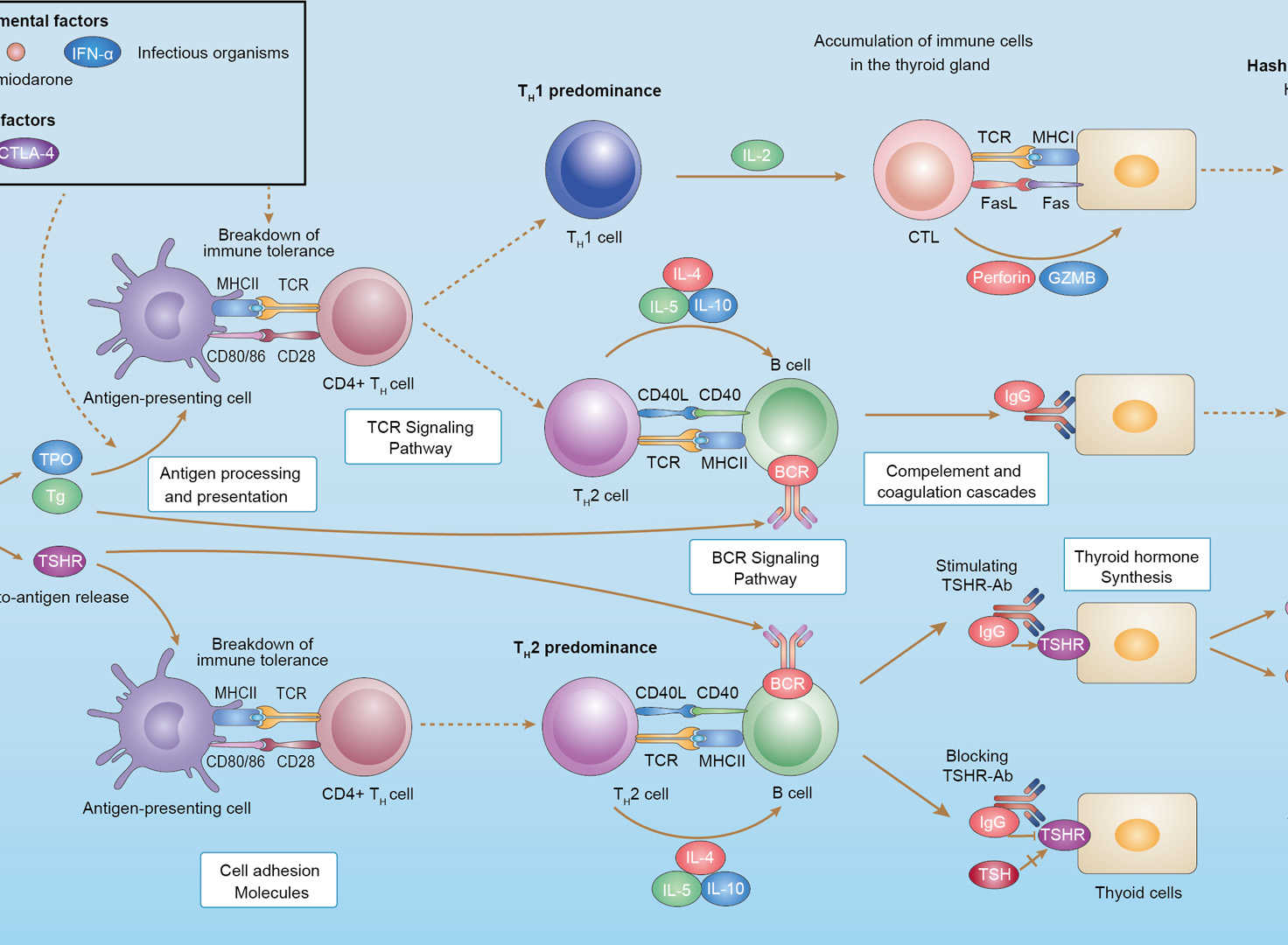Recombinant Anti-CD40 (CRD2 x CRD1) Biparatopic Antibody, Tandem scFv
CAT#: VS-0525-YC206
This biparatopic antibody (bpAb) targets two distinct CD40 epitopes via its tandem scFv arms, which bind simultaneously with high affinity. One scFv targets an epitope on both CRD2 and CRD1, directly overlapping with the CD40L binding site. In contrast, the other scFv targets an epitope on the top half of CRD1, notably not overlapping with the CD40L binding interface.



Specifications
- Host Animal 1
- Human
- Host Animal 2
- Mouse
- Specificity
- Human CD40
- Species Reactivity
- Human
- Type
- Tandem scFv
- Valency
- 1 + 1
- Epitope 1
- Both CRD2 and CRD1, exactly overlapping with the CD40L binding site.
- Epitope 2
- The top half of CRD1, and no overlap with the CD40L binding interface
- Purity
- >90%
- Purification
- Affinity purified
- Applications
- ELISA, FC, IF, IHC, IP
- Concentration
- Lot specific
- Buffer
- PBS, pH 7.4
- Preservative
- No preservatives
- Storage
- Store at 4°C for short term. Aliquot and store at -20°C for long term. Avoid freeze-thaw cycles.
- Long Name
- CD40 Molecule
Target
- Introduction
- This gene is a member of the TNF-receptor superfamily. The encoded protein is a receptor on antigen-presenting cells of the immune system and is essential for mediating a broad variety of immune and inflammatory responses including T cell-dependent immunoglobulin class switching, memory B cell development, and germinal center formation. AT-hook transcription factor AKNA is reported to coordinately regulate the expression of this receptor and its ligand, which may be important for homotypic cell interactions. Adaptor protein TNFR2 interacts with this receptor and serves as a mediator of the signal transduction. The interaction of this receptor and its ligand is found to be necessary for amyloid-beta-induced microglial activation, and thus is thought to be an early event in Alzheimer disease pathogenesis. Mutations affecting this gene are the cause of autosomal recessive hyper-IgM immunodeficiency type 3 (HIGM3). Multiple alternatively spliced transcript variants of this gene encoding distinct isoforms have been reported.
- Alternative Names
- Tumor necrosis factor receptor superfamily member 5; TNFRSF5; p50
- Gene ID
- 958
- UniProt ID
- P25942
Customer Review
There are currently no Customer reviews or questions for VS-0525-YC206. Click the button above to contact us or submit your feedback about this product.
Submit Your Publication
Published with our product? Submit your paper and receive a 10% discount on your next order! Share your research to earn exclusive rewards.
Related Diseases
Downloadable Resources
Download resources about recombinant antibody development and antibody engineering to boost your research.
Datasheet
MSDS
COA
Certificate of Analysis LookupTo download a Certificate of Analysis, please enter a lot number in the search box below. Note: Certificate of Analysis not available for kit components.
Protocol & Troubleshooting
We have outlined the assay protocols, covering reagents, solutions, procedures, and troubleshooting tips for common issues in order to better assist clients in conducting experiments with our products. View the full list of Protocol & Troubleshooting.
See other products for "CD40"
Select a product category from the dropdown menu below to view related products.
| CAT | Product Name | Application | Type |
|---|---|---|---|
| MOB-1269z | Mouse Anti-CD40 Recombinant Antibody (clone 27G1) | FC, FuncS | Mouse IgG1, κ |
| CAT | Product Name | Application | Type |
|---|---|---|---|
| TAB-262 | Anti-Human CD40 Recombinant Antibody (TAB-262) | IP, IF, FuncS, FC, Neut, ELISA, ICC | IgG1 |
| CAT | Product Name | Application | Type |
|---|---|---|---|
| TAB-759 | Anti-CD40 Recombinant Antibody (Lucatumumab) | ELISA, FC, IP, FuncS, IF, Neut, IHC | IgG1 - kappa |
| CAT | Product Name | Application | Type |
|---|---|---|---|
| TAB-152 | Anti-Human CD40 Recombinant Antibody (TAB-152) | IF, IP, Neut, FuncS, ELISA, FC, ICC | IgG1 |
| CAT | Product Name | Application | Type |
|---|---|---|---|
| AGTO-G079E | Anti-CD40 immunotoxin (scFv)-PE | Cytotoxicity assay, Function study |
| CAT | Product Name | Application | Type |
|---|---|---|---|
| TAB-126CL | Human Anti-CD40 Recombinant Antibody (TAB-126CL) | Block, Cyt, FuncS, Inhib | Human IgG |
| CAT | Product Name | Application | Type |
|---|---|---|---|
| TAB-0061CL | Anti-Human CD40 Recombinant Antibody (PPAT-071-01) | ELISA, ADCC, CDC, FuncS |
| CAT | Product Name | Application | Type |
|---|---|---|---|
| TAB-0062CL | Anti-Human CD40 Recombinant Antibody (PPAT-071-02) | ELISA, ADCC, CDC, FuncS |
| CAT | Product Name | Application | Type |
|---|---|---|---|
| TAB-0063CL | Anti-Human CD40 Recombinant Antibody (PPAT-071-03) | ELISA, ADCC, CDC, FuncS |
| CAT | Product Name | Application | Type |
|---|---|---|---|
| TAB-0064CL | Anti-Human CD40 Recombinant Antibody (PPAT-071-04) | ELISA, ADCC, CDC, FuncS |
| CAT | Product Name | Application | Type |
|---|---|---|---|
| TAB-0065CL | Anti-Human CD40 Recombinant Antibody (PPAT-071-05) | ELISA, ADCC, CDC, FuncS |
| CAT | Product Name | Application | Type |
|---|---|---|---|
| TAB-188LC | Anti-Human CD40 Recombinant Antibody (chi220) | SPR, ELISA, Inhib, FuncS | Chimeric antibody (mouse/human) |
| CAT | Product Name | Application | Type |
|---|---|---|---|
| TAB-189LC | Anti-Human CD40 Recombinant Antibody (F4) | SPR, ELISA | Humanized antibody |
| CAT | Product Name | Application | Type |
|---|---|---|---|
| TAB-190LC | Anti-Human CD40 Recombinant Antibody (L3.17) | SPR, ELISA | Humanized antibody |
| CAT | Product Name | Application | Type |
|---|---|---|---|
| TAB-194LC | Human Anti-CD40 Recombinant Antibody (TAB-194LC) | ELISA | Humanized IgG1, κ |
| CAT | Product Name | Application | Type |
|---|---|---|---|
| TAB-195LC | Human Anti-CD40 Recombinant Antibody (TAB-195LC) | ELISA, Agonist | Human IgG2 |
| CAT | Product Name | Application | Type |
|---|---|---|---|
| TAB-196LC | Human Anti-CD40 Recombinant Antibody (TAB-196LC) | ELISA, Agonist | Human IgG2 |
| CAT | Product Name | Application | Type |
|---|---|---|---|
| TAB-197LC | Human Anti-CD40 Recombinant Antibody (TAB-197LC) | ELISA, Agonist | Human IgG2 |
| CAT | Product Name | Application | Type |
|---|---|---|---|
| TAB-198LC | Human Anti-CD40 Recombinant Antibody (TAB-198LC) | ELISA | Human IgG2 |
| CAT | Product Name | Application | Type |
|---|---|---|---|
| TAB-202LC | Anti-CD40 Recombinant Antibody (TAB-202LC) | ELISA, FC, FuncS | Chimeric (mouse/rhesus) IgG1 |
| CAT | Product Name | Application | Type |
|---|---|---|---|
| TAB-203LC | Anti-CD40 Recombinant Antibody (TAB-203LC) | ELISA, FC, FuncS | Chimeric (mouse/rhesus) IgG4 |
| CAT | Product Name | Application | Type |
|---|---|---|---|
| TAB-188LC-S(P) | Anti-Human CD40 Recombinant Antibody scFv Fragment (chi220) | SPR, ELISA | Chimeric antibody (mouse/human) |
| CAT | Product Name | Application | Type |
|---|---|---|---|
| MOB-1129MZ | Mouse Anti-CD40 Recombinant Antibody (clone 93206) | ELISA | Mouse IgG2b |
| CAT | Product Name | Application | Type |
|---|---|---|---|
| NEUT-362CQ | Human Anti-CD40 Recombinant Antibody (clone 5D12) | Block, ELISA, FC, SPR, IP, IHC | Human IgG4, κ |
| CAT | Product Name | Application | Type |
|---|---|---|---|
| NEUT-363CQ | Mouse Anti-CD40 Recombinant Antibody (clone 5C3) | FC, Block, Activ | Mouse IgG1, κ |
| CAT | Product Name | Application | Type |
|---|---|---|---|
| NEUT-364CQ | Mouse Anti-CD40 Recombinant Antibody (clone CBL829) | WB, Neut | Mouse IgG2b, κ |
| CAT | Product Name | Application | Type |
|---|---|---|---|
| NEUT-365CQ | Hamster Anti-CD40 Recombinant Antibody (clone HM40-3) | FC, Block, Costim, IHC | Hamster IgM |
| CAT | Product Name | Application | Type |
|---|---|---|---|
| NEUT-366CQ | Rat Anti-CD40 Recombinant Antibody (clone MAB0819) | Block, Activ | Rat IgG2 |
| CAT | Product Name | Application | Type |
|---|---|---|---|
| NEUT-367CQ | Mouse Anti-CD40 Recombinant Antibody (clone CBL013) | WB, IHC, Neut | Mouse IgG2 |
| CAT | Product Name | Application | Type |
|---|---|---|---|
| MOR-4059 | Hi-Affi™ Rabbit Anti-CD40 Recombinant Antibody (clone SI126DS) | ELISA | Rabbit IgG |
| CAT | Product Name | Application | Type |
|---|---|---|---|
| MOB-105LC | Human Anti-CD40 Recombinant Antibody (MOB-105LC) | FC, FuncS | Human IgG1, κ |
| CAT | Product Name | Application | Type |
|---|---|---|---|
| MOB-106LC | Human Anti-CD40 Recombinant Antibody (MOB-106LC) | FC, FuncS, ELISA | Human IgG2, κ |
| CAT | Product Name | Application | Type |
|---|---|---|---|
| MOB-107LC | Human Anti-CD40 Recombinant Antibody (MOB-107LC) | FC, FuncS, ELISA | Human IgG2, κ |
| CAT | Product Name | Application | Type |
|---|---|---|---|
| HPAB-0162-YC | Human Anti-CD40 Recombinant Antibody (HPAB-0162-YC) | FC | Human IgG |
| CAT | Product Name | Application | Type |
|---|---|---|---|
| HPAB-0163-YC | Human Anti-CD40 Recombinant Antibody (HPAB-0163-YC) | FC | Human IgG |
| CAT | Product Name | Application | Type |
|---|---|---|---|
| HPAB-0164-YC | Human Anti-CD40 Recombinant Antibody (HPAB-0164-YC) | FC, Agonist | Human IgG |
| CAT | Product Name | Application | Type |
|---|---|---|---|
| HPAB-0162-YC-S(P) | Human Anti-CD40 Recombinant Antibody; scFv Fragment (HPAB-0162-YC-S(P)) | FC | Human scFv |
| CAT | Product Name | Application | Type |
|---|---|---|---|
| HPAB-0163-YC-S(P) | Human Anti-CD40 Recombinant Antibody; scFv Fragment (HPAB-0163-YC-S(P)) | FC | Human scFv |
| CAT | Product Name | Application | Type |
|---|---|---|---|
| HPAB-0164-YC-S(P) | Human Anti-CD40 Recombinant Antibody; scFv Fragment (HPAB-0164-YC-S(P)) | FC, Agonist | Human scFv |
| CAT | Product Name | Application | Type |
|---|---|---|---|
| HPAB-0165-YC-S(P) | Human Anti-CD40 Recombinant Antibody; scFv Fragment (HPAB-0165-YC-S(P)) | FC | Human scFv |
| CAT | Product Name | Application | Type |
|---|---|---|---|
| HPAB-0166-YC-S(P) | Human Anti-CD40 Recombinant Antibody (clone S2C6); scFv Fragment | FC, FuncS | Human scFv |
| CAT | Product Name | Application | Type |
|---|---|---|---|
| HPAB-0162-YC-F(E) | Human Anti-CD40 Recombinant Antibody; Fab Fragment (HPAB-0162-YC-F(E)) | FC | Human Fab |
| CAT | Product Name | Application | Type |
|---|---|---|---|
| HPAB-0163-YC-F(E) | Human Anti-CD40 Recombinant Antibody; Fab Fragment (HPAB-0163-YC-F(E)) | FC | Human Fab |
| CAT | Product Name | Application | Type |
|---|---|---|---|
| HPAB-0164-YC-F(E) | Human Anti-CD40 Recombinant Antibody; Fab Fragment (HPAB-0164-YC-F(E)) | FC, Agonist | Human Fab |
| CAT | Product Name | Application | Type |
|---|---|---|---|
| HPAB-0165-YC-F(E) | Human Anti-CD40 Recombinant Antibody; Fab Fragment (HPAB-0165-YC-F(E)) | FC | Human Fab |
| CAT | Product Name | Application | Type |
|---|---|---|---|
| HPAB-0166-YC-F(E) | Human Anti-CD40 Recombinant Antibody (clone S2C6); Fab Fragment | FC, FuncS | Human Fab |
| CAT | Product Name | Application | Type |
|---|---|---|---|
| NS-021CN | Human Anti-CD40 Recombinant Antibody (NS-021CN) | ELISA, IF, Block, FuncS | Human IgG |
| CAT | Product Name | Application | Type |
|---|---|---|---|
| NS-021CN-F(E) | Human Anti-CD40 Recombinant Antibody; Fab Fragment (NS-021CN-F(E)) | ELISA | Human Fab |
| CAT | Product Name | Application | Type |
|---|---|---|---|
| NS-021CN-S(P) | Human Anti-CD40 Recombinant Antibody; scFv Fragment (NS-021CN-S(P)) | ELISA | Human scFv |
| CAT | Product Name | Application | Type |
|---|---|---|---|
| AFC-TAB-152 | Afuco™ Anti-CD40 ADCC Recombinant Antibody, ADCC Enhanced (AFC-TAB-152) | IF, IP, Neut, FuncS, ELISA, FC | ADCC enhanced antibody |
| CAT | Product Name | Application | Type |
|---|---|---|---|
| AFC-TAB-262 | Afuco™ Anti-CD40 ADCC Recombinant Antibody, ADCC Enhanced (AFC-TAB-262) | IP, IF, FuncS, FC, Neut, ELISA | ADCC enhanced antibody |
| CAT | Product Name | Application | Type |
|---|---|---|---|
| AFC-TAB-759 | Afuco™ Anti-CD40 ADCC Recombinant Antibody, ADCC Enhanced (AFC-TAB-759) | ELISA, FC, IP, FuncS, IF, Neut | ADCC enhanced antibody |
| CAT | Product Name | Application | Type |
|---|---|---|---|
| AFC-TAB-470CQ | Afuco™ Anti-CD40 ADCC Recombinant Antibody, ADCC Enhanced (AFC-TAB-470CQ) | ELISA, IHC, FC, IP, IF, FuncS | ADCC enhanced antibody |
| CAT | Product Name | Application | Type |
|---|---|---|---|
| AFC-TAB-006ML | Afuco™ Anti-CD40 ADCC Recombinant Antibody, ADCC Enhanced (AFC-TAB-006ML) | ELISA, IHC, FC, IP, IF, Inhib | ADCC enhanced antibody |
| CAT | Product Name | Application | Type |
|---|---|---|---|
| HPAB-1218WJ | Recombinant Llama Anti-CD40 Single Domain Antibody (HPAB-1218WJ) | ELISA | Llama VHH |
| CAT | Product Name | Application | Type |
|---|---|---|---|
| HPAB-1219WJ | Recombinant Llama Anti-CD40 Single Domain Antibody (HPAB-1219WJ) | ELISA | Llama VHH |
| CAT | Product Name | Application | Type |
|---|---|---|---|
| HPAB-1220WJ | Recombinant Llama Anti-CD40 Single Domain Antibody (HPAB-1220WJ) | ELISA | Llama VHH |
| CAT | Product Name | Application | Type |
|---|---|---|---|
| VS-0724-XY18 | Mouse Anti-CD40 Agonistic Antibody (VS-0724-XY18) | FC, Agonistic assays, CyTOF®, ICC | Mouse IgG2b |
| CAT | Product Name | Application | Type |
|---|---|---|---|
| VS-0724-XY19 | Rat Anti-Cd40 Agonistic Antibody (VS-0724-XY19) | FC, IP, Agonistic assays, CyTOF® | Rat IgG2a |
| CAT | Product Name | Application | Type |
|---|---|---|---|
| VS-0724-YC1328 | AbPlus™ Anti-CD40 Magnetic Beads (VS-0724-YC1328) | IP, Protein Purification |
| CAT | Product Name | Application | Type |
|---|---|---|---|
| VS-0924-YC117 | Mouse Anti-CD40 Recombinant Antibody Hexamer (VS-0924-YC117), CDC Enhanced | ELISA, ADCC, CDC | Antibody hexamer |
| CAT | Product Name | Application | Type |
|---|---|---|---|
| VS-0924-YC118 | Human Anti-CD40 Recombinant Antibody Hexamer (VS-0924-YC118), CDC Enhanced | ELISA, Block, FC, IF, Activ, CDC | Antibody hexamer |
| CAT | Product Name | Application | Type |
|---|---|---|---|
| VS-0225-XY52 | CytoStream™ Armenian Hamster Anti-CD40 Recombinant Antibody (clone HM40-3) | FC, Block | Armenian Hamster IgM, kappa |
| CAT | Product Name | Application | Type |
|---|---|---|---|
| VS-0325-FY89 | Rat Anti-CD40 (clone FGK45) scFv-Fc Chimera | FC, WB, Agonist | Rat IgG1, scFv-Fc |
| CAT | Product Name | Application | Type |
|---|---|---|---|
| VS-0425-YC514 | Recombinant Anti-CD40 Vesicular Antibody, EV Displayed (VS-0425-YC514) | ELISA, FC, Neut, Cell-uptake |
| CAT | Product Name | Application | Type |
|---|---|---|---|
| VS-0525-XY1181 | Anti-CD40 Immunohistochemistry Kit | IHC |
| CAT | Product Name | Application | Type |
|---|---|---|---|
| VS-0525-YC30 | Recombinant Anti-CD40 (CRD1 x ECD) Biparatopic Antibody, Tandem scFv | ELISA, FC, Neut, IHC, IP, IF | Tandem scFv |
| CAT | Product Name | Application | Type |
|---|---|---|---|
| VS-0525-YC208 | Recombinant Anti-CD40 Biparatopic Antibody, Tandem scFv (Bleselumab x Selicrelumab) | ELISA, FC, IP, IF, IHC | Tandem scFv |
| CAT | Product Name | Application | Type |
|---|---|---|---|
| VS-0825-YC57 | SmartAb™ Recombinant Anti-CD40 pH-dependent Antibody (VS-0825-YC57) | ELISA, ICC, IP, IF, FC, Neut | Human IgG1 |
Popular Products

Application: Neut, ELISA, IF, IP, FuncS, FC, IHC

Application: FuncS, IF, Neut, ELISA, FC, IP, IHC

Application: FuncS, IF, Neut, ELISA, FC, IP, ICC

Application: WB, FuncS, IF, Neut, ELISA, FC, IP

Application: ELISA, FC

Application: WB, ELISA, IF

Application: ELISA, IHC, FC, IP, IF, FuncS
For research use only. Not intended for any clinical use. No products from Creative Biolabs may be resold, modified for resale or used to manufacture commercial products without prior written approval from Creative Biolabs.
This site is protected by reCAPTCHA and the Google Privacy Policy and Terms of Service apply.






 Asthma
Asthma
 Systemic Lupus Erythematosus
Systemic Lupus Erythematosus
 Primary Immunodeficiency
Primary Immunodeficiency
 Allograft Rejection
Allograft Rejection
 Autoimmune Thyroid Disease
Autoimmune Thyroid Disease
















